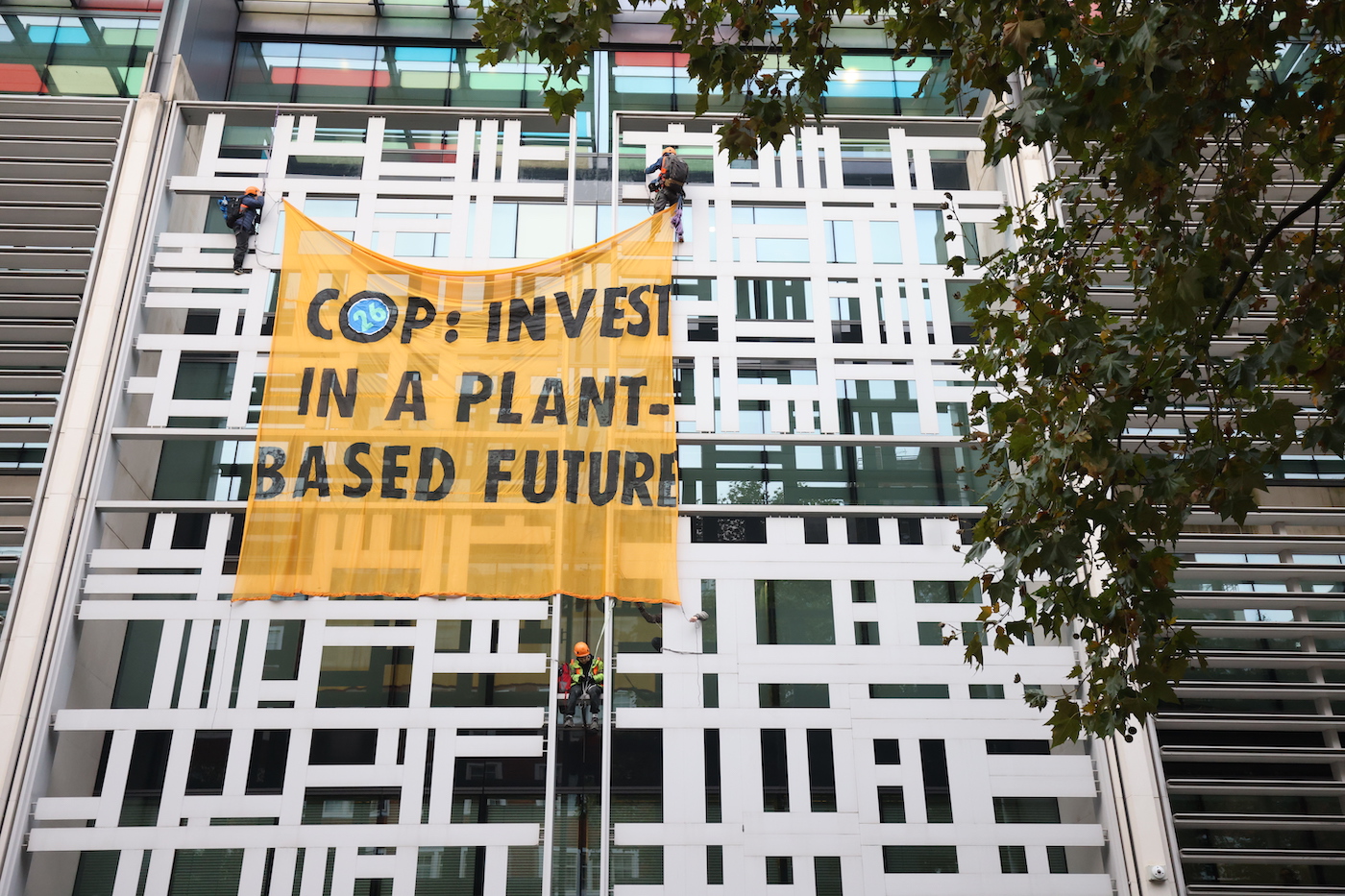Delegates attending the international climate negotiations in Glasgow, Scotland, have lots of big decisions to make — including in the dining hall.
Instead of counting calories, the menu at COP26 highlights each dish’s carbon footprint with prominent green labels. You can order the traditional Scottish haggis with turnips and potatoes for 3.4 kilograms of CO2 equivalent, the standard measurement for greenhouse gas emissions — or get the vegetarian haggis for just 0.6 kilograms.
The menu has been criticized by some activists for including high-carbon foods like burgers and cheese (this is a climate conference, after all). It hints at the challenges that come with asking people to change their habits for the sake of the planet. Pleas to take the bus or go vegan often fall on deaf ears.
A new poll suggests that there is a “limited appetite” for these personal efforts to tackle climate change. While 78 percent of people surveyed from around the world said they were concerned about the crisis, almost half — 46 percent — said they didn’t feel much of a need to change their own habits. Instead, people wanted their governments to take action. Some 76 percent said they’d accept stricter environmental rules and regulations.
There’s been a lot of debate over the role personal actions play in stabilizing the climate. Some say that ditching plastic straws is a gateway to getting politically involved, or argue that green habits are contagious: Putting solar panels on your roof pressures your neighbors to do the same. Others point out that oil companies like BP promoted the concept of personal carbon footprints, an effort to deflect attention from the outsized role fossil fuels play in causing climate change. All the tofu burgers in the world are no match for King Coal.

The poll, conducted in late September by Kantar Public, a data and consulting company, surveyed 9,000 people in the U.S., the U.K., France, Germany, Spain, Netherlands, Poland, Singapore, and New Zealand.
When asked which environmental measures were most important, people tended to name commonplace habits, like recycling, or ones that required a coordinated, large-scale effort, such as stopping deforestation or constructing energy-efficient buildings. Just under a third of respondents said reducing personal energy consumption was “very important,” and a quarter said the same for preferencing public transportation over cars. Reducing meat consumption was an even less popular option.
The survey also provided insight into why people weren’t willing to adopt more climate-friendly habits. Respondents said that they couldn’t afford to make behavioral changes (60 percent) and that they didn’t think changing personal habits did much good anyway (39 percent). Most wanted more resources and equipment from authorities (69 percent) to aid in efforts to stem the crisis.
But they didn’t seem very confident that these resources were on the way: just 18 percent thought their national governments were committed to the cause.
“Clearly, the onus is on governments to take the lead,” the survey concludes. “This means governments taking the risk of implementing potentially unpopular measures that combine encouragement and obligation.”
It’s worth noting that systemic change and individual behavior are linked. New government policies, for example, can make climate-friendly behaviors easier and convenient: Building sprawling cities with lots of freeways means people need cars, whereas building dense cities with fast public transit and ample bike lanes makes it easier to ditch your car for something more climate-friendly.
Delegates at COP26 can make a bigger difference spending their energy advocating for stronger climate policies, rather than seeking out the burger with the lowest carbon count. But for once, there are plenty of vegan options available at a conference attended by about 25,000 people — and that’s progress, too.



